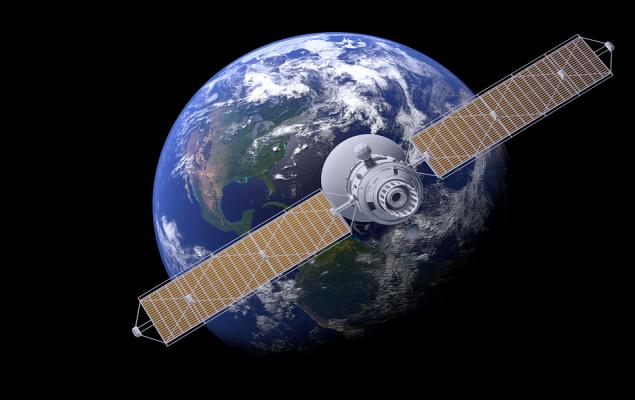Coming up as a new frontier, the space economy is witnessing frequent groundbreaking advancements worldwide. The S&P Kensho Space Index has drastically outperformed the S&P 500 Index, reflecting strong investor confidence and growing market optimism toward the space industry.
The space index has added 49.16% over the past year, significantly outpacing the broad market index, which has gained 12.11%. Increasing investor interest in the sector is majorly driven by rising demand for advanced defense systems and cybersecurity infrastructure.
Additionally, rising interest for space travel and heightened investment in research and development by both governmental and private entities are the driving forces behind space tourism.
As modern warfare evolves and with the rise of drones, it’s increasingly likely that economies will expand their defense capabilities through the development of their own space-based arsenal. President Trump’s proposed $175 billion Golden Dome missile defense concept highlights this fact.
According to Reuters, Golden Dome aims to protect the expansive U.S. homeland from ballistic, hypersonic and cruise missile threats through an integrated network of satellites, sensors and interceptors, an ambitious initiative that could redefine the strategic norms of outer space.
Per Reuters, the Congressional Budget Office projects that the total cost could reach as high as $542 billion. However, the United States is not the only one looking to increase investments in the militarization of space.
Per CNBC, NATO’s increased defense spending signals new opportunities for space and defense sectors, further bolstered by its recently announced commercial space strategy. This follows the military alliance’s proposal to raise defense spending to 5% of GDP, give space budgets a significant lift.
According to Andrius Kubilius, EU space and defence commissioner, as quoted on Reuters, this century belongs to space, with a space revolution underway, the impact of which will be massive. As quoted on Reuters, the EU unveiled the long-awaited EU Space Act on Wednesday, signaling major regulatory changes for the EU’s growing space sector, in a bid to increase competitiveness with the United States and China.
As global investments increasingly prioritize climate control, the advancements within space technologies and the broader space economy also promise significant benefits.
Already integral to disaster warning and management, space technology’s role is expected to expand significantly with improved climate disaster monitoring, resilient communication network access and optimized tracking through satellite positioning data.
Story Continues
